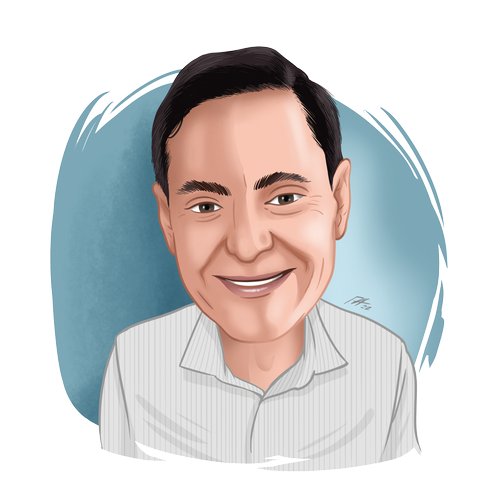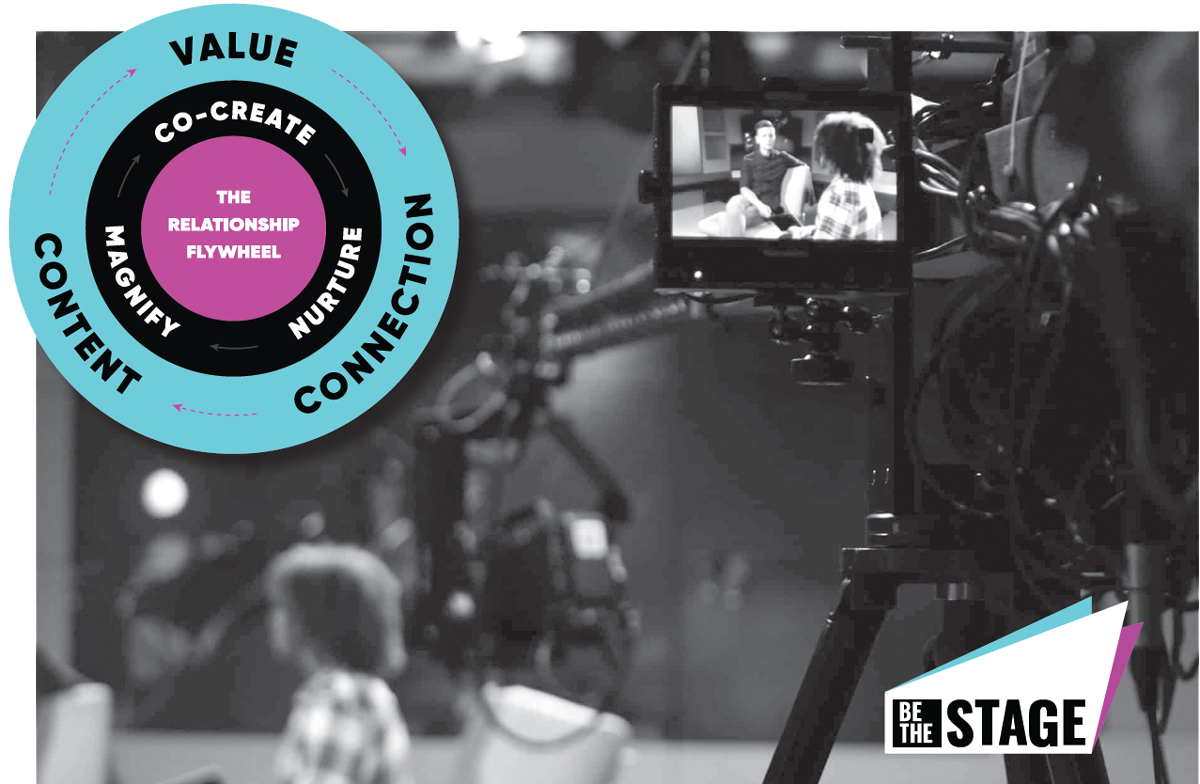
Pablo Gonzalez
Be The Stage, CEO, Co-Founder, host of B2B Community Builder Show Podcast
Creating a weekly talk-show is the ultimate David vs Goliath move these days. Talk-shows are essentially revamped webinars: put the spotlight on past clients or industry experts, inspire your buyers, and create meaningful relationships.
We recently had the opportunity to sit down with Pablo Gonzalez, the founder of Be The Stage, an agency focused on content- and relationship-building strategies.
Q: Why is community so important though for a business?
It’s simple: relationships drive revenue!
There’s no more powerful way to acquire a client than a prospect overhearing two super consumers talk about your product. Talk-shows are essentially a systematic version of that.
Here’s what it all boils down to. You can have restless nights thinking about which competitor will come up with a new feature or a lower price. Or you can build relationships with your customers.
Relationships create an impenetrable moat for a business, withstanding attacks from newcomers and gaining market share from incumbents.
If you don’t want to keep competing on pricing and features, build relationships with your customers, and help them build relationships with each other.
Q: How do you create a business community? What does that look like?
By far the best way is to create a weekly talk-show. It’s really a Zoom call or a webinar… but it’s so much more than that.
— PG.
The mistake most companies make with their webinars is that they’re too focused on themselves: what do I want my customers to learn, what do I want to share, etc. instead, you want to think: how can I get them excited about working with me? By showcasing people who’ve been where they want to be, talking about their top-of-mind pain points and how they overcame them, helping them with real-life stories that show them the path to success.
I can easily host a webinar and teach someone how to host a podcast or a talk-show. But that sounds boring. Instead, I can bring on a panel of 3 companies at a similar stage to my prospect, and ask them to share their experiences. What hurdles they faced, how they solved them, and what results they got. Oh and at the end – by the way – attendees can join my bootcamp to learn how to do it themselves, or work with me for a more “done for you” solution.
For your content to be successful, it needs to educate, entertain, inspire and connect people with each other!
Q: What’s the work involved in hosting a talk-show like that? For example, what activities do you take off your clients’ plate?
— PG.
It can be a bit overwhelming or perhaps your evangelist may not have the bandwidth or resources to take care of everything. So we can come in and help with setting the right strategi for the show to deliver the desired outcome.
Then, we reach out to guests for the show, onboard them, provide the host with speaking points, co-host to drive engagement during the talk-show, and afterwards create promo clips, post on social media, invite people to the show, and have a producer to manage the technology.
Q: Can you give me an example of how that worked out?
One of our first clients was an innovative real estate company, JWB, which makes it super-simple for people to invest in properties the same way as buying a bond. We host a twice-a-week talk-show where the co-founder just shows up for the discussion and we drive real engagement among the attendees. This talk-show has driven more than $40 million of revenue and 60% of new clients!

Q: When is a company ready to build a community?
When it can identify an internal evangelist. Someone who’s problem-focused, insight-obsessed, and content-creator. Then use these superpowers not to put yourself in the front all the time but rather to create the watering hole for your industry to come together.
Don’t be the king, be the king-maker. You want to create the stage and invite your customers and other industry leaders on that stage.
Q: What is the lesson from all this that you wish you knew earlier?
It all started really clicking for me when I realized that my superpower of being able to belong worked much better when I was making the person in front of me belong.
Instead of trying to be the coolest person in the room, making others feel like the coolest person in the room works much better.
Q: And what’s a lesson from your favorite book?
My favorite book is “Play Bigger” and the main lesson I learned from it is how to design a category and become the category king.
Instead of competing in somebody else’s category, create your own space that you can dominate by evangelizing a problem instead of a solution.
The person that can state the problem the best will be known to have the solution.
— Quote Source
Thank You For Your Vote!
Sorry You have Already Voted!
